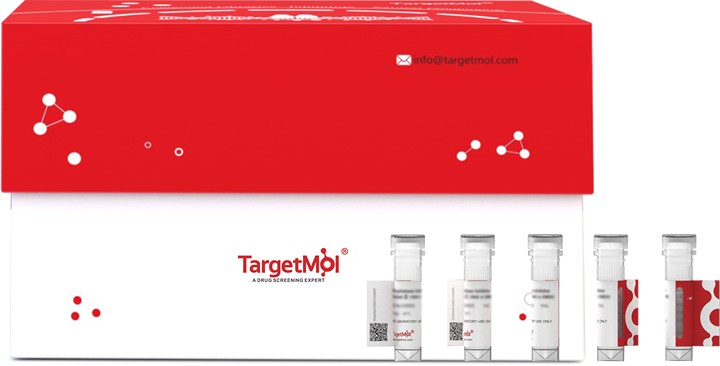购物车
 您的购物车当前为空
您的购物车当前为空
别名 fibroblast growth factor-21, FGFL, FGF21
FGF-21 Protein, Human, Recombinant is expressed in E. coli. The accession number is Q9NSA1.


为众多的药物研发团队赋能,
让新药发现更简单!
FGF-21 Protein, Human, Recombinant is expressed in E. coli. The accession number is Q9NSA1.
| 规格 | 价格 | 库存 | 数量 |
|---|---|---|---|
| 5 μg | ¥ 539 | 6-8日内发货 | |
| 10 μg | ¥ 882 | 6-8日内发货 | |
| 20 μg | ¥ 1,290 | 5日内发货 | |
| 50 μg | ¥ 2,160 | 5日内发货 | |
| 100 μg | ¥ 3,660 | 5日内发货 | |
| 200 μg | ¥ 6,230 | 5日内发货 | |
| 500 μg | ¥ 12,600 | 5日内发货 | |
| 1 mg | ¥ 21,600 | 5日内发货 |
| 产品描述 | FGF-21 Protein, Human, Recombinant is expressed in E. coli. The accession number is Q9NSA1. |
| 生物活性 | ED 50 < 0.5 µg/ml, measured by a cell proliferation assay using NIH-3T3 cells in the presence of 1.25 µg/ml mouse Klotho and 10 µg/ml heparin, corresponding to a specific activity of > 2.0 × 10 3 units/mg. |
| 研究背景 | Fibroblast Growth Factor-21 (FGF-21) is a metabolic cytokine belonging to the heparin-binding FGF family. Along with FGF-19/15 and FGF-23, FGF-21 is categorized as a member of the atypical FGF subfamily, as it must be complexed to the Klotho co-receptor in order to bind to the FGF receptors and activate the downstream signaling pathway. In vivo FGF-21 is expressed in liver, pancreas, adipose tissue, and skeletal muscle, and it plays a central role in the energy metabolism. The expression of FGF-21 is stimulated by free fatty acids and insulin resistant states and is correlated with whole-body insulin resistance. FGF-21 activates glucose uptake in adipocytes and increases insulin sensitivity, implicating it as a novel target with potential anti-diabetic properties. |
| 种属 | Human |
| 表达系统 | E. coli |
| 标签 | Tag Free |
| 蛋白编号 | Q9NSA1 |
| 蛋白构建 | His29-Ser209 |
| 蛋白纯度 | > 95% as determined by SDS-PAGE; > 95% as determined by HPLC |
| 缓冲液 | Lyophilized from a 0.2 μm filtered solution in PBS. |
| 复溶方法 | Reconstitute the lyophilized protein in sterile deionized water. The product concentration should not be less than 100 μg/ml. Before opening, centrifuge the tube to collect powder at the bottom. After adding the reconstitution buffer, avoid vortexing or pipetting for mixing. |
| 别名 | fibroblast growth factor-21, FGFL, FGF21 |
| 内毒素 | < 0.2 EU/μg of protein as determined by the LAL method. |
| 分子量 | ~19.5 kDa (Reducing conditions) |
| 运输方式 | In general, Lyophilized powders are shipping with blue ice. Solutions are shipping with dry ice. |
| 存储 | Upon receiving, this product remains stable for up to 6 months at lower than -70°C. Upon reconstitution, the product should be stable for up to 1 week at 4°C or up to 3 months at -20°C. For long term storage it is recommended that a carrier protein (example 0.1% BSA) be added. Avoid repeated freeze-thaw cycles. |
对于不同动物的给药剂量换算,您也可以参考 更多